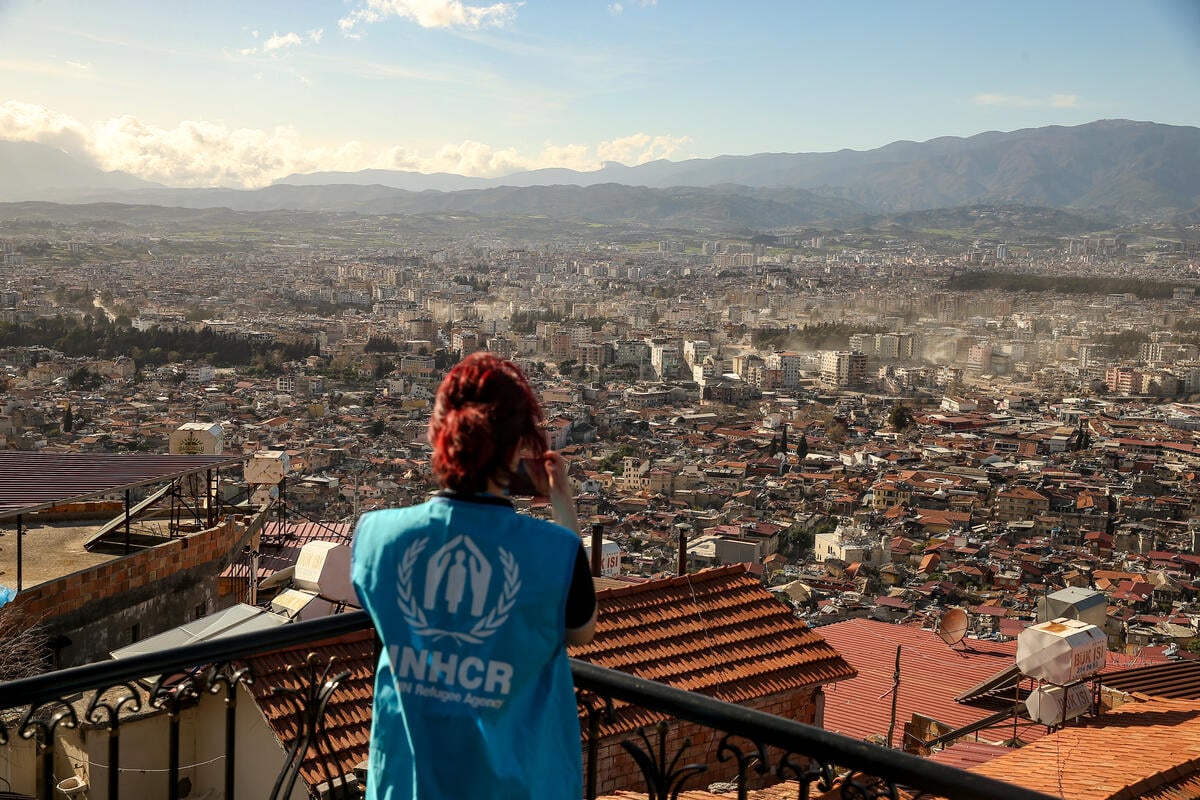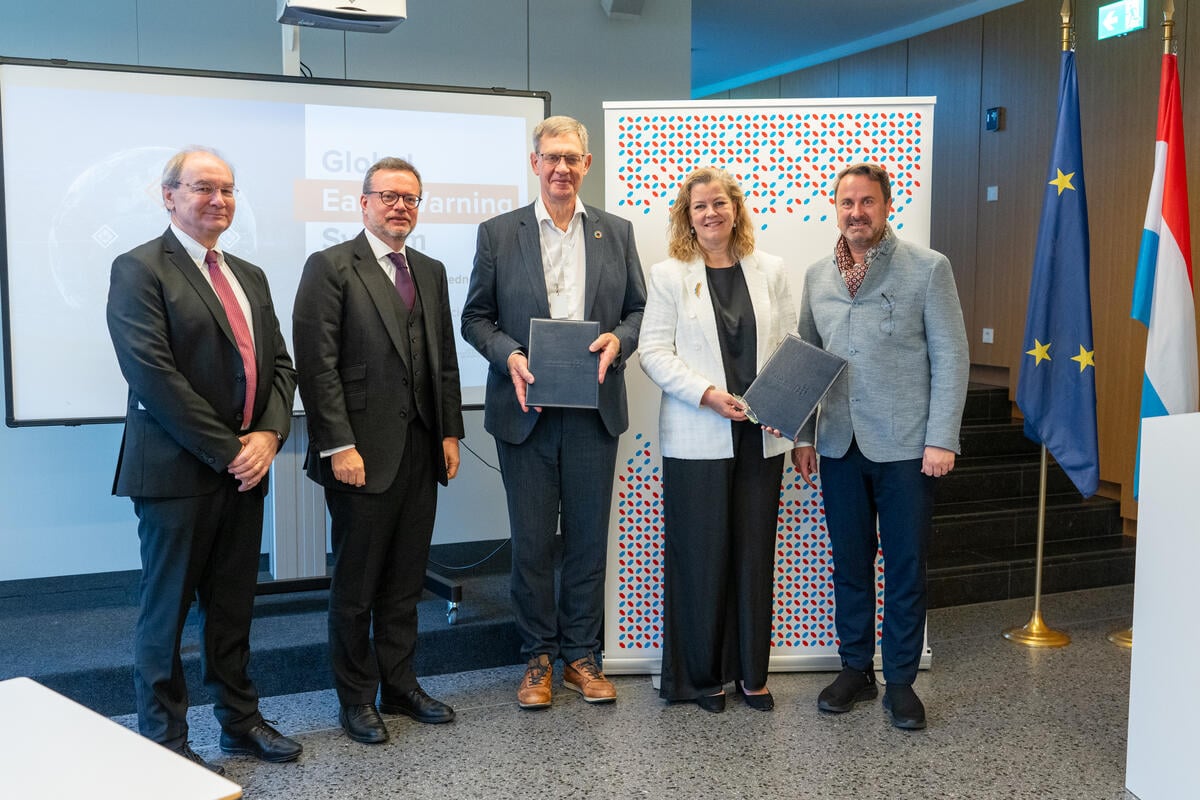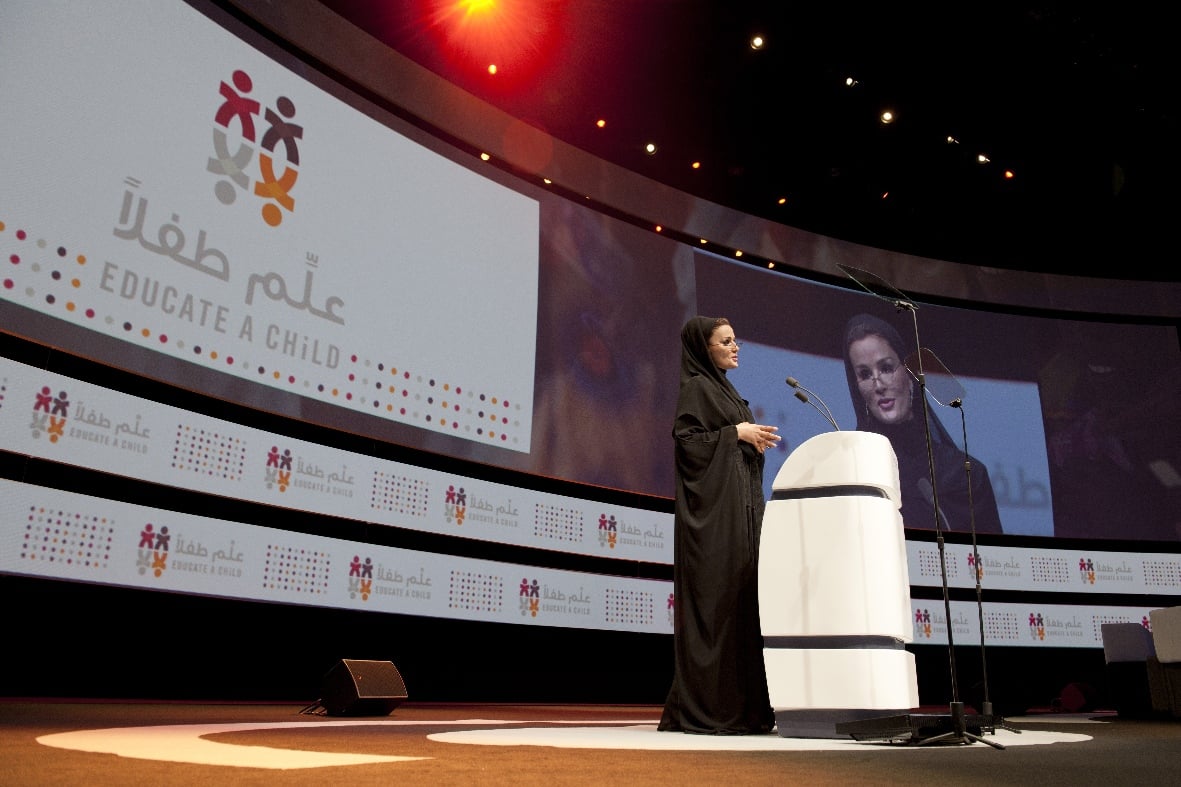South Sudanese supermodel Alek Wek's journey home
South Sudanese supermodel Alek Wek's journey home

Supermodel Alek Wek returned to South Sudan to meet with refugees and returnees one year after independence.
JUBA, South Sudan, July 25 (UNHCR) - Supermodel and former refugee Alek Wek recently returned to her native South Sudan to mark the fledgling nation's first anniversary, meet refugees and visit UNHCR programmes aimed at helping some of the hundreds of thousands of returnees rebuild their lives.
During her week-long trip, the Dinka model, who fled to the United Kingdom as a teenager in 1991, attended the official ceremony on July 9 in Juba to mark independence from Sudan. Her visit also came as tens of thousands of Sudanese flee from Sudan to South Sudan to escape fighting in border states and reach remote refugee camps.
Wek visited one such camp, Yusuf Batil in Maban county, where UNHCR and partners have been struggling to provide sufficient assistance to more than 34,000 refugees in tough conditions, including torrential rains. The model met a group of refugees who had been relocated from a camp near the border, and said they were relieved to have been moved to a safer area.
While concerned about the fresh problems facing South Sudan, Wek said she was moved by the resilience and determination of so many of the people she met. "At the way station in Juba, some returnees have been waiting for land to be allocated for a year, but still there is so much hope and pride that they have their country back," she stressed.
Wek said she was determined to support UNHCR programmes for returnees in areas such as education, health and agriculture. In a village near her hometown of Wau, which she had fled as a 10-year-old, Wek saw for herself how humanitarian interventions can help. The refugee agency funded the construction of a community centre, police station and health clinic in Alek Chok village and provides the 500 families living there with seeds and tools to grow their own crops.
"Over and over again I heard people talking about the need for education," said Wek while visiting Wau. She was greeted by singing and dancing children and watched a play performed by others who had returned to the south from the Sudan capital, Khartoum.
One woman in Alek Chok told Wek that her children had to walk for two or three hours to get to a secondary school. "Girls particularly need access to education in South Sudan," Wek said, adding that she hoped to find ways to help UNHCR continue to support education initiatives in her hometown.
It's a big issue for UNHCR, which since 2005 has funded the construction of a number of community-based primary schools in areas of high return. The agency has also funded the construction of teacher training institutes in the South Sudan capital, Juba, and in the north-western town of Aweil, in Northern Bahr el Ghazal.
People with a decent education will be vital in rebuilding the country, which was left devastated and short of professionals after almost two decades of war.
"I have always felt it important to support the efforts of organizations who help refugees rebuild their lives. As a refugee from South Sudan, I understand what it is like to be forced from your home. It's painful, scary and can separate you from your loved ones," Wek wrote during her visit.
The South Sudanese supermodel concluded her journey home as the keynote speaker at the TEDx conference from South Sudan. She reflected upon her journey and reiterated her commitment to helping rebuild her country with a specific emphasis on youth.
Wek was discovered in a London park by a modeling scout. She went on to become one of the first African models to appear on the catwalk in the world's major fashion centres. She now lives in the United States.
By Charity Tooze in Juba, South Sudan






